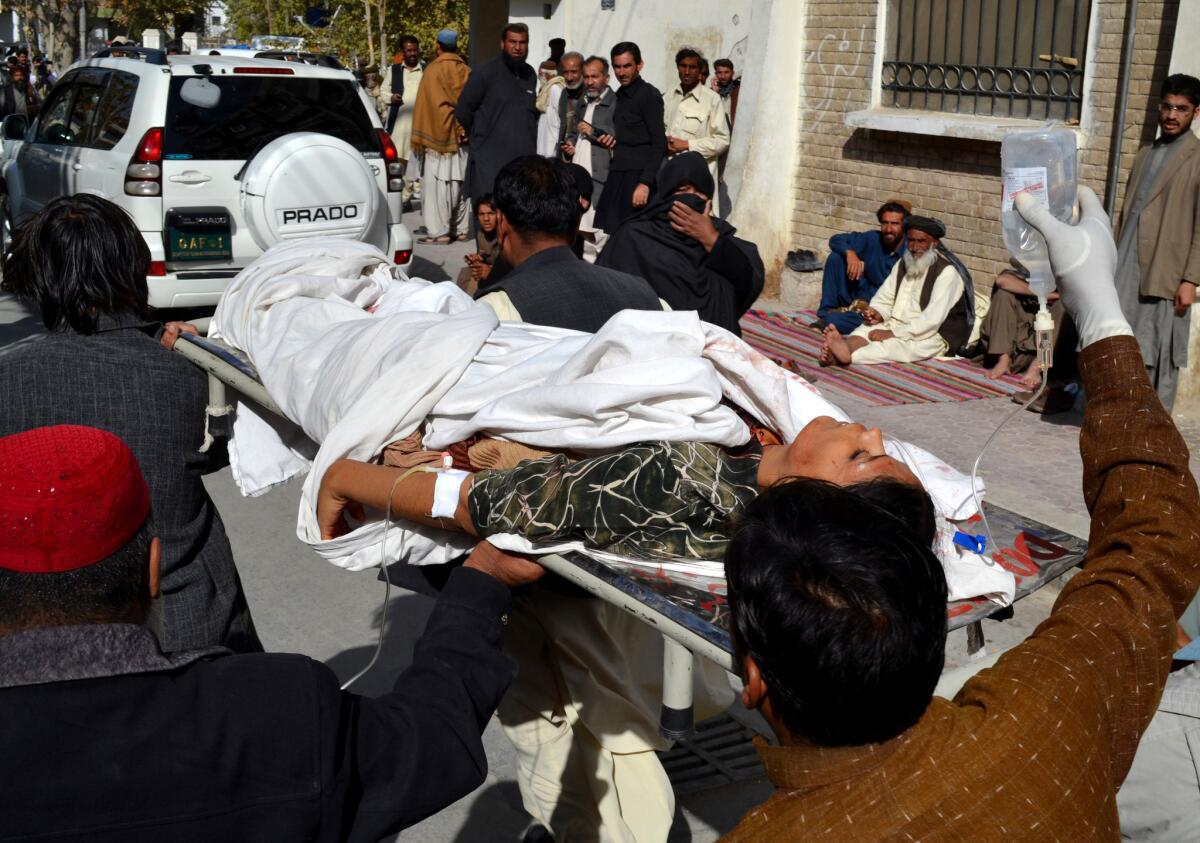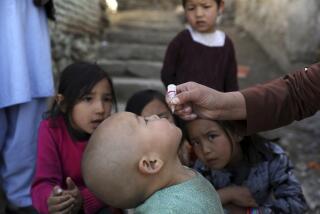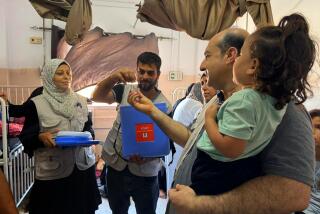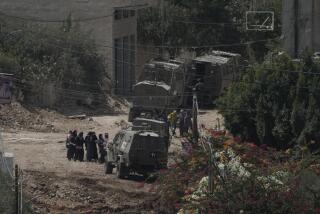Four health workers slain in attack on Pakistan vaccination team

Reporting from Peshawar, Pakistan — Gunmen shot and killed four health workers carrying out a polio vaccination drive Wednesday in the capital of Pakistan’s restive Baluchistan province, police officials said.
The deadly shooting was the latest to target polio workers -- whom Islamist militants accuse of conducting espionage in the guise of vaccination campaigns -- in Pakistan, one of three countries where the disease has not been eradicated.
Police said that two armed men on a motorcycle opened fire on the workers as they waited for a security escort in the southwestern city of Quetta. Three women and one man were killed while three others were wounded, authorities said.
One worker who survived the attack told reporters at the city’s Civil Hospital that security arrangements were inadequate.
“There was a policeman standing at a distance, but he didn’t come to our aid. We called everyone but no one came to our rescue,” the woman was quoted as saying by Dawn newspaper, which did not name her.
Pakistani authorities this month launched a vaccination drive in 11 districts of Baluchistan, where militants have been waging a long-running insurgency against the federal government in Islamabad. Officials plan to administer the polio vaccine to more than 238,000 children younger than 5.
At least 10 polio cases were reported in those districts so far this year.
Following the attack, police and paramilitary forces fanned out to search for the suspects but made no arrests. Witnesses told local media that the attackers escaped after firing the shots.
Lady Health Workers, an association representing health workers in the province, announced that it would not participate in the polio vaccination drive due to the security risks.
Provincial Health Minister Rehmat Saleh Baloch expressed sadness over the incident. “I extend my grief and sorrow with the grieving families,” he said.
No group immediately claimed responsibility for the attack. Workers administering oral polio drops to the children are frequently attacked across Pakistan, particularly in Baluchistan, the province of Khyber Pakhtunkhwa, the port city of Karachi and the northeastern tribal areas.
Gunmen shot at a polio worker outside Peshawar on Monday when he was visiting houses to administer the vaccine. Jamaat ul Ahrar, a splinter group of the Pakistani Taliban, claimed responsibility for the attack.
The group later released a “policy statement” on polio saying that the vaccine is “dangerous to health and against Islam.”
The militant groups regard the vaccination campaigns as a ploy by the United States and Western countries to carry out espionage and render recipients infertile. Their distrust was in fed in part by a phony vaccination campaign against hepatitis B carried out in 2011 by a Pakistani doctor aiding U.S. officials in their search for Osama bin Laden, who was killed by Navy SEALs in May of that year.
The militants have killed 57 people in polio-related attacks since July 2012.
Pakistan has 262 known cases of polio, the highest number in the world. Neighboring India, meanwhile, was recently declared polio-free after a years-long, internationally backed battle against the infectious nerve disease, which can sometimes be fatal.
Separately, airstrikes reportedly carried out by a U.S. drone aircraft in the North Waziristan tribal area struck a hideout belonging to members of the Haqqani network, killing nine militants, security officials said Wednesday.
The Tuesday night attack near Shawal, close to the border with Afghanistan, was believed to have killed two associates of the Haqqani network, which is blamed for several major attacks against U.S.-led coalition forces in Afghanistan. The reports could not be independently confirmed because the area is virtually inaccessible to journalists.
Pakistani and foreign militants have moved to Shawal and other areas since the Pakistani army launched a major offensive in North Waziristan this year. At the same time, U.S. drone aircraft have resumed airstrikes in the tribal areas, particularly in the last three months, according to Pakistani sources and local residents.
Ali is a special correspondent. Staff writer Shashank Bengali in Mumbai, India, contributed to this report.
Follow @SBengali on Twitter for news out of South Asia
More to Read
Sign up for Essential California
The most important California stories and recommendations in your inbox every morning.
You may occasionally receive promotional content from the Los Angeles Times.










